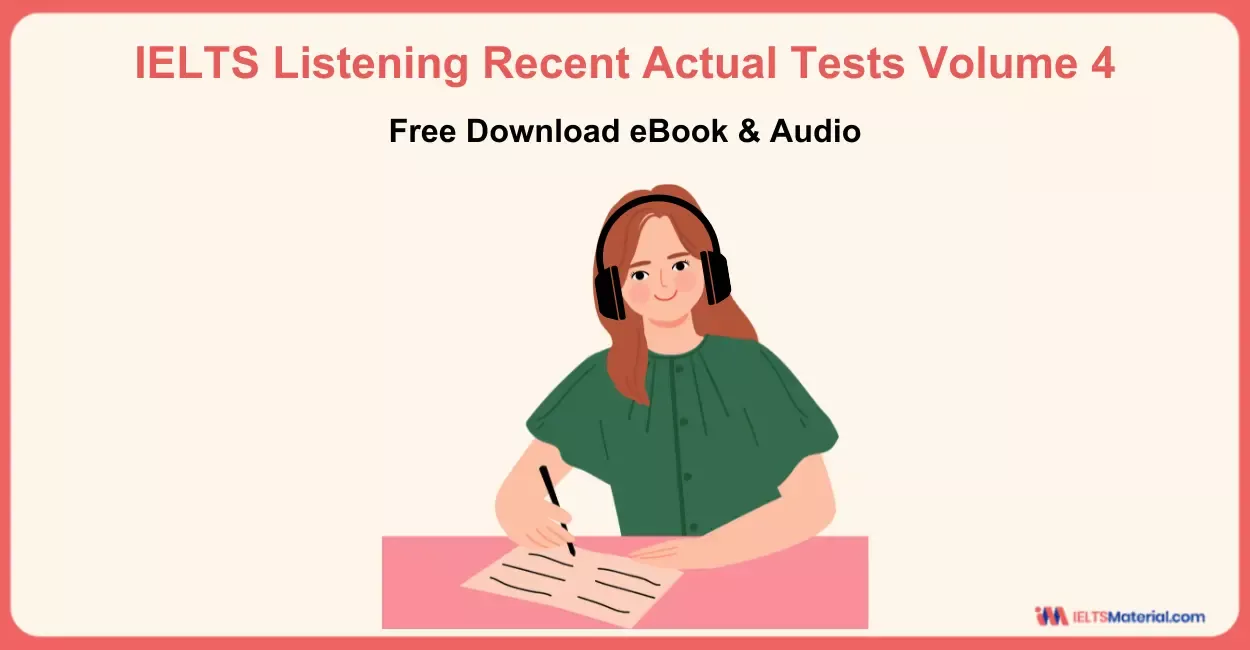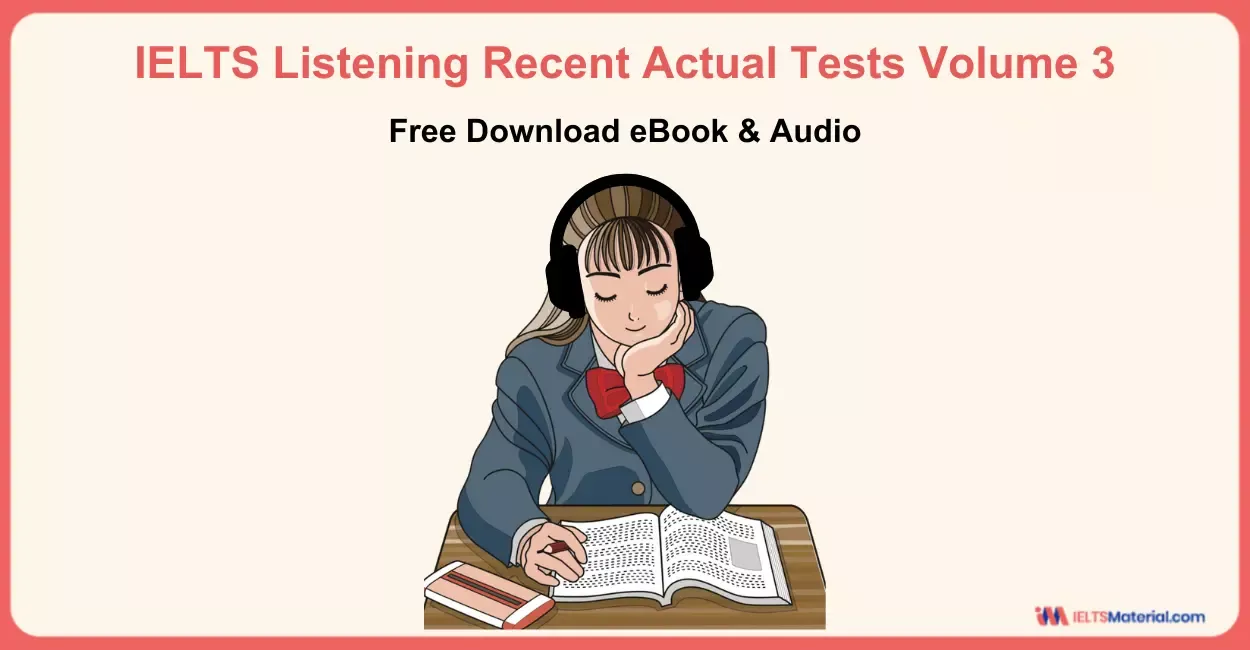How is IELTS Listening Band Score Calculated?
4 min read
Updated On
-
Copy link
The IELTS Listening band score is calculated from the number of correct answers out of 40, converted into a 1-9 band. The article explains the band score conversion, proficiency levels for each score, and tips to improve listening skills.
Table of Contents

Limited-Time Offer : Access a FREE 10-Day IELTS Study Plan!
Candidates taking the IELTS Listening exam have to answer 40 questions in total, which are divided into 10 questions among the four sections. It is commonly known that each of these 40 questions 1 mark each and there is no negative marking. But the question arises - How Your IELTS Listening Band Score is Calculated - because the IELTS score report provides band scores ranging from 0-9.
In this blog, we will get to know the answer of how total score is converted to band score, what does each IELTS band score in IELTS Listening mean and also get some tips to improve the listening skill.
How the IELTS Listening Band Score is Calculated?
The IELTS Listening band score for each candidate is calculated based on the number of correct answers out of 40, which is known as the raw score. This raw score is then converted into a band score ranging from 1 to 9, with each band representing a certain level of English proficiency in the module.
Below is a general guide to how raw scores are converted into band scores for the IELTS Listening test:
|
Correct Answers (Raw Score) |
IELTS Band Score |
|---|---|
|
39-40 |
9.0 |
|
37-38 |
8.5 |
|
35-36 |
8.0 |
|
32-34 |
7.5 |
|
30-31 |
7.0 |
|
26-29 |
6.5 |
|
23-25 |
6.0 |
|
18-22 |
5.5 |
|
16-17 |
5.0 |
|
13-15 |
4.5 |
|
11-12 |
4.0 |
This table shows the average number of marks needed to achieve a particular IELTS Listening band score. Due to the variation in listening questions used on different occasions, real scores may differ between tests.
When preparing for IELTS, it’s helpful to take practice tests to estimate the band score. For example, if the test-taker gets 28 out of 40 questions correct, they can expect a band score of around 6.5. Regular practice will not only give them an idea of their potential score, but will also highlight areas where they need to improve.
Take advantage of these experts' insider tips to get to band score in IELTS Listening!
Band Descriptors for IELTS Listening
Now that it is clear which score is equivalent to which IELTS band score, it is important to note the English proficiency level that each of these band scores represents.
|
IELTS Band Score |
Skill Level |
Descriptions |
|---|---|---|
|
9 |
Expert |
User has perfect comprehension and an acceptable, accurate, and fluent mastery of the language. |
|
8 |
Very Good |
User's mastery of the language is fully functional, with the exception of occasional, careless errors and inappropriate statements. Unknown situations can lead to miscommunications. However, adept in handling intricate, thorough arguments. |
|
7 |
Good |
User possesses practical command of the language, despite frequent mistakes, improper statements, and misinterpretations in certain situations. They can generally handle complex language and have high grasp of complex thinking. |
|
6 |
Competent |
User's grasp of the language is generally effective, in spite of occasional errors, misinterpretations, and inaccuracies. They are able to use and comprehend moderately complex language, especially in contexts they are accustomed with. |
|
5 |
Modest |
User can understand the general meaning of the language in most instances, but they are likely to make a lot of mistakes. They are capable of managing basic communication within their area. |
|
4 |
Limited |
User's basic competency is restricted to well-known scenarios but has regular issues with comprehension and communication. However, they are unable to speak in complicated terms. |
|
3 |
Extremely Limited |
User can convey and understand only general meaning in very familiar situations. Frequent breakdowns in communication occur. |
|
2 |
Intermittently |
User cannot really communicate except for the most basic information using isolated words or short formulae in familiar situations and to meet immediate needs. Has great difficulty understanding spoken and written English. |
|
1 |
Non-user |
User has no ability to use the language beyond possibly a few isolated words. |
|
0 |
Did not attempt test |
- |
Sign up for free IELTS webinars and learn how to nail IELTS Listening!
Tips to Improve Your Listening Score
It is time to go over some IELTS Listening tips to improve the listening skill as well as achieve a better band score.
- Improve Your Vocabulary: Understanding common phrases and terms used in everyday conversations or academic contexts will help you catch answers more easily. Therefore, it is important to boost the IELTS vocabulary while preparing for this module.
- Use Active Listening: Pay close attention to keywords, synonyms, and paraphrasing. IELTS Listening tests often use different phrases or common words in IELTS Listening in the audio compared to the questions.
- Practice Regularly: Use IELTS Listening practice tests to get used to the format and timing. Listen to a variety of accents, including British, American, and Australian, as IELTS uses multiple accents.
- Transfer Answers Carefully: While the test gives you 10 minutes to transfer your answers to the IELTS Listening answer sheet, ensure you spell words correctly and follow any word limits for completion tasks.
- Manage Your Time: Make sure you don't spend too long on any one question. If you're unsure, move on and return later if time allows.
To conclude, understanding how the IELTS Listening band score is calculated can help IELTS candidates set realistic goals and measure their progress. They have to remember that accuracy is key, and each correct answer can significantly impact the overall score. By practicing regularly, improving listening skills, and familiarizing themself with the test format, they can work towards achieving their desired band score.
Also Check:
- What is Signposting?
- Free IELTS Mock Test Online | Practice IELTS Online Tests 2024
- A Complete Guide to How IELTS Listening Test is Conducted in 2024
- IELTS Listening Practice Test 10 with Answers
- Useful Resources & Websites For IELTS Listening
- How to improve listening sections 3 and 4?
- 15 Days’ Practice For IELTS Listening (Ebook & Audio)
- IELTS listening recent actual test

Start Preparing for IELTS: Get Your 10-Day Study Plan Today!
Explore other Listening Articles

Nehasri Ravishenbagam

Kasturika Samanta
Recent Articles

Kasturika Samanta

Prity Mallick

Haniya Yashfeen

Kasturika Samanta






Post your Comments